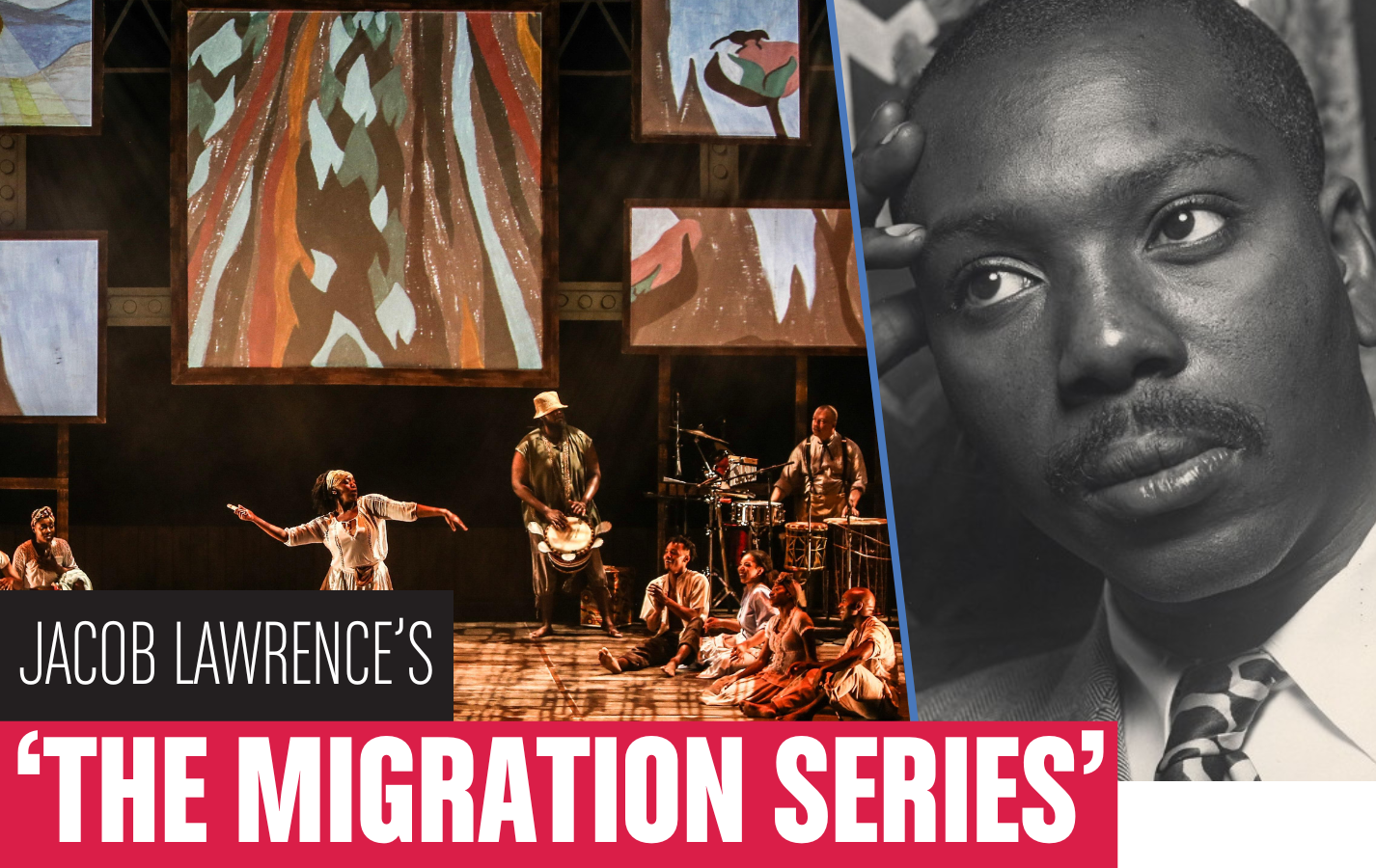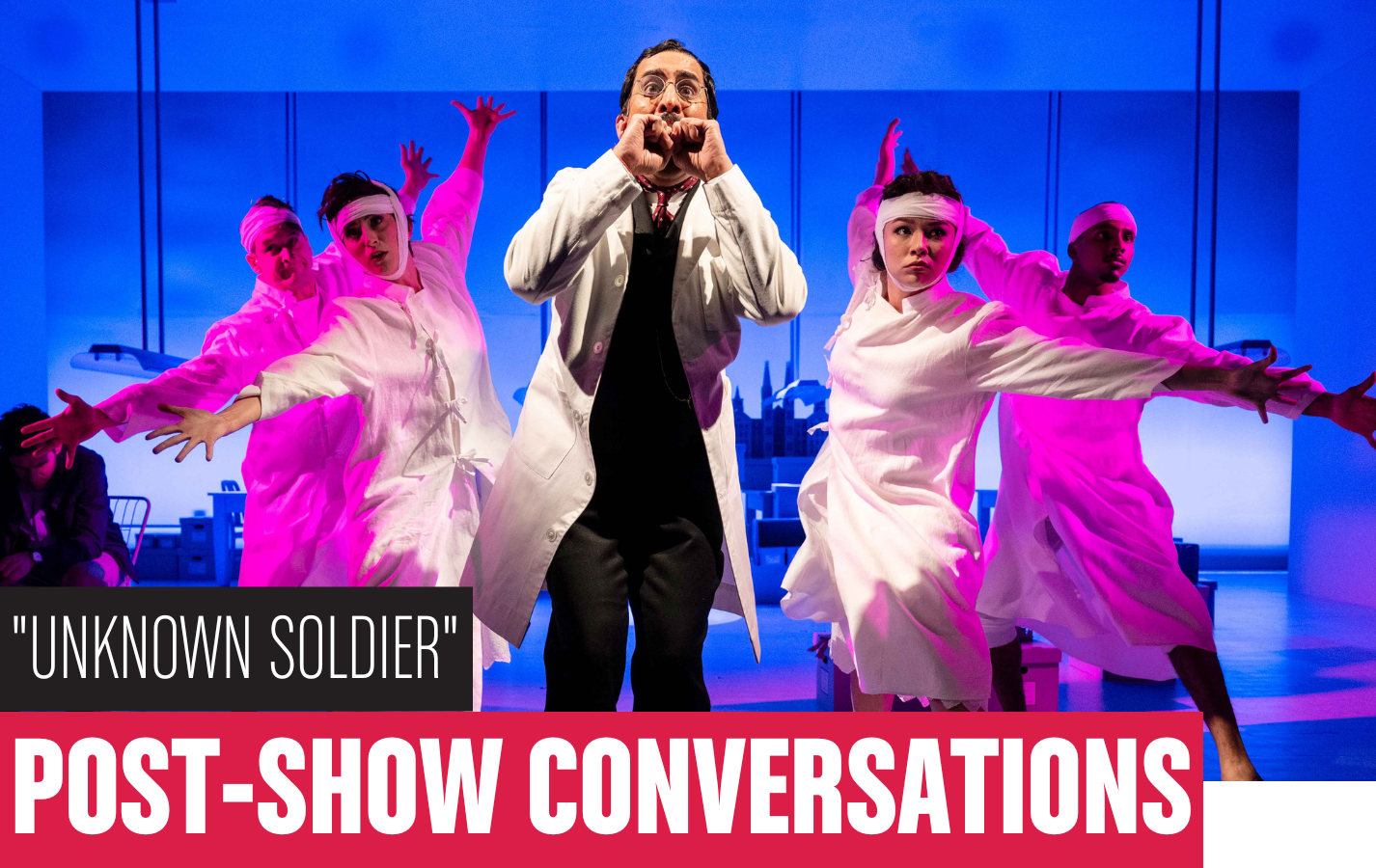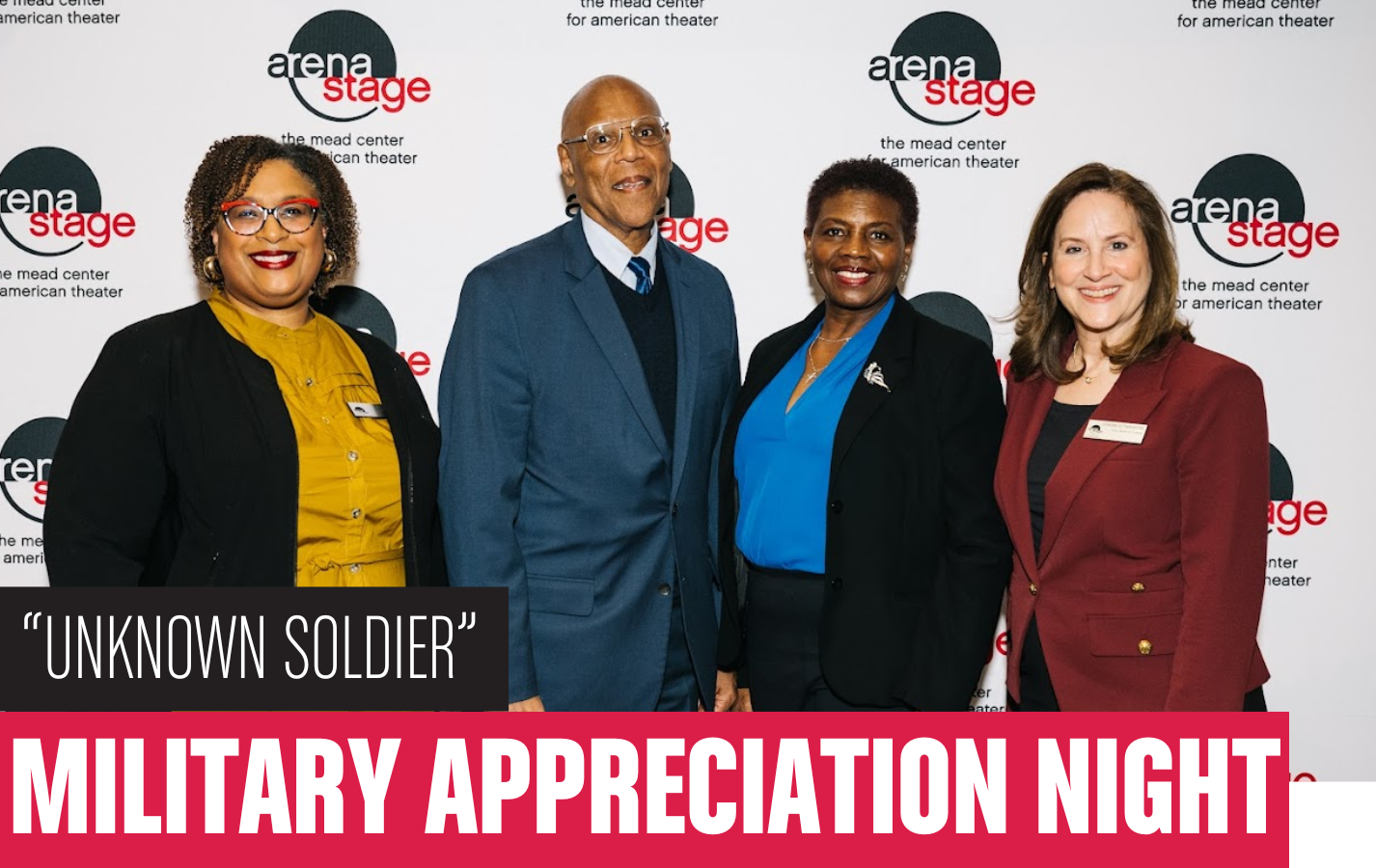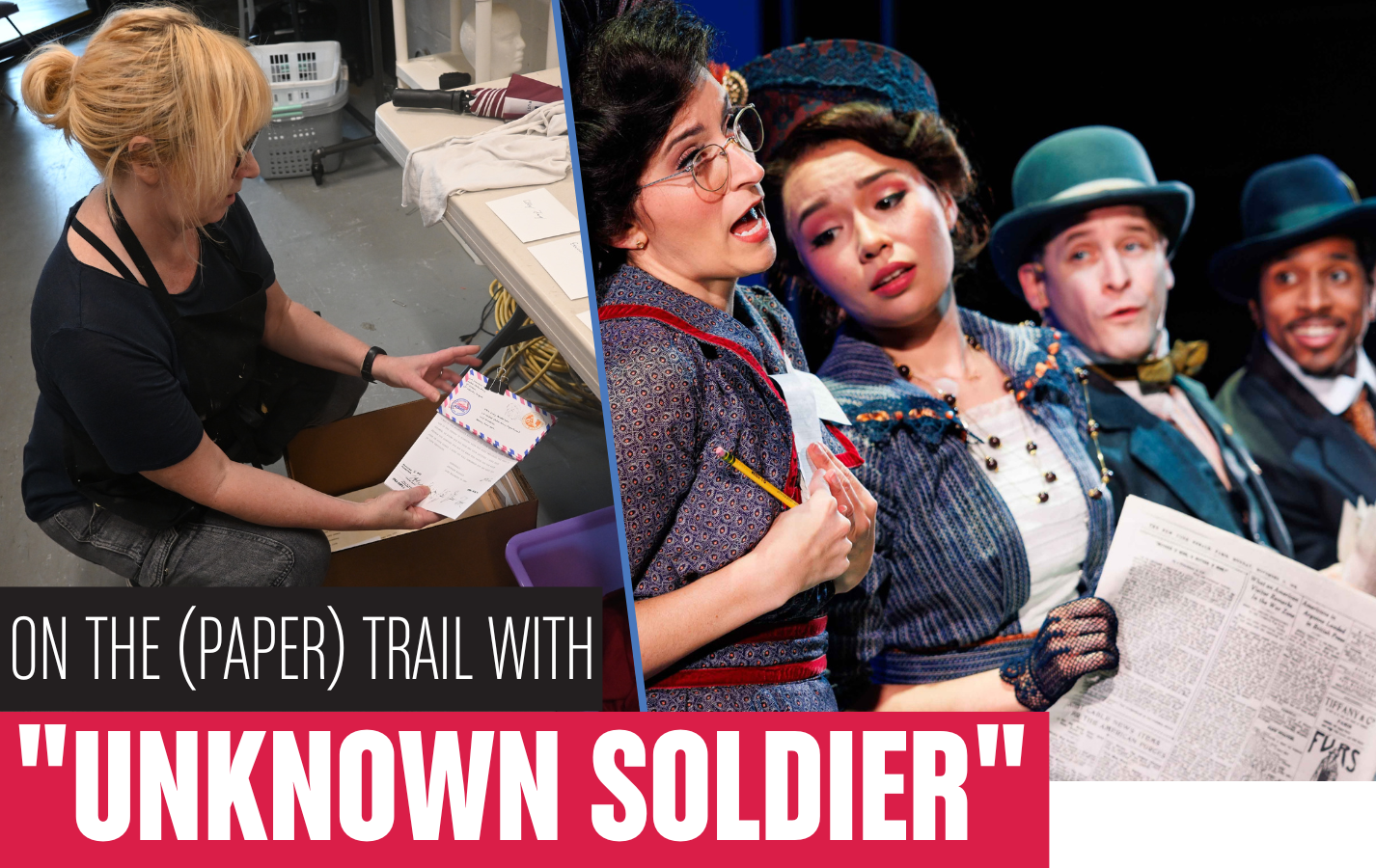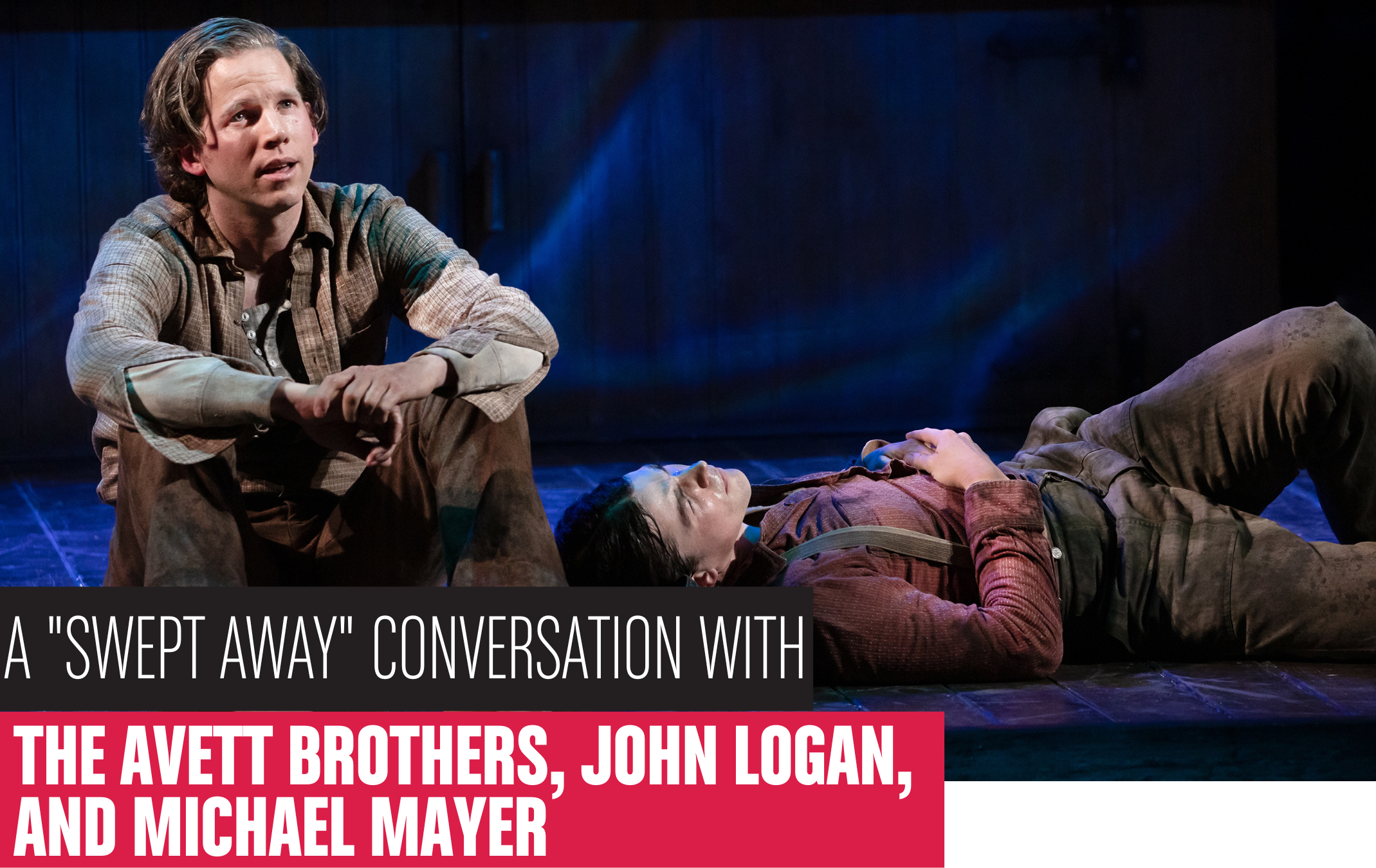
Reprinted with permission from Berkeley Repertory Theatre.
One day, a man who loved The Avett Brothers had a thought: wouldn’t their music make an amazing stage musical? Producer Matthew Masten followed this impulse from the tiniest seed of an idea to the tree in full flower that you now get to experience. He brought together the incredible book writer and director and made space for the magic to happen. Berkeley Rep’s Resident Dramaturg Madeleine Oldham talked with Scott Avett and Bob Crawford of The Avett Brothers, director Michael Mayer, and book writer John Logan about bringing this gem of a show into the world.
To begin, I’m curious to know from Scott and Bob: when you first learned that somebody wanted to make a musical based on your work, how did you feel about that? What was your response?
Scott Avett: The songs were birthed in such a visual way that it made sense. But I also felt total awe and amazement. Because it takes somebody else — many somebody elses — to make things like this happen. For someone to have that interest, love, and drive, as Matthew [Masten] did, was incredible.
Bob Crawford: When the album Mignonette was being written, we were early in our touring life, and Scott was reading about the shipwreck and events that loosely inspired the album. The big conversation in the tour van was about this ship captain who said, “When we get back to shore, there’s the custom of the sea, and we didn’t really follow it, but we didn’t follow it because it wasn’t practical at the time. When we get back to shore, we’re going to tell the truth. And if it hangs us, it hangs us.” And that was kind of our attitude, in those years. The songs spoke a certain truth, and if we could stand behind the songs, we would always be okay, come success or failure.
As we drove, we talked a lot about the craft of songwriting. One theme that kept coming up was: “Can I sing this lyric for the rest of my life and still believe in it?” To me, our conversations about songwriting were like a craftsman building a dining room table and chairs, or a cabinet. When I became enamored with songwriting in my late teens, it was more the Jack Kerouac style: you spit it out; there’s no editing. For Scott and Seth, the process was more, “Craft this lyric and keep refining it, and edit, and edit, and edit, and just make it right.”
Michael, I see you nodding as Bob talks about crafting and editing. Is there something you’d like to add about that?
Michael Mayer: What appeals to me about these songs is that incredible craftsmanship. What you hope for as a director is that the songs will have enough in them to sustain a performance through a run. When Scott says “it’s got to be a song that I want to sing for the rest of my life,” it’s the same principle. The actors have to want to sing these songs through the entire run of a show. We’re trying to craft something that will stand the test of time. It has to have sturdiness, texture, layers of character, emotion, and imagery — all the elements of a great song. This music has them in spades.
John, when you were first contacted about making a musical based on The Avett Brothers’ music, do you remember your initial response?
John Logan: One morning, out of the blue, I got an email from someone I didn’t know. Matthew Masten asked if I thought the Avetts’ concept album Mignonette could make a stage musical. I instantly responded yes — and that I’m in!
Were you an Avett Brothers fan? What prompted you to say yes instantly?
John Logan: I was a fan. Then a casual fan — now a rabid fan. There is something unique and powerful about their songs: real storytelling and drama I thought would work well on stage. Plus, when you’re writing a musical you live with the music for years, so you have to love it and be continually inspired by it. The Avetts never disappoint and constantly inspire.
The only question I asked when I began was: will the Avett Brothers open their whole song catalog to me? Can I use everything? They were gracious enough to agree. My process for creating the story and writing the book was straightforward, if time intensive: I listened to every single Avett Brothers song and took notes on all of them. As I listened, characters began to emerge. The story and characters were built as I was choosing the songs for the show. It all came to life organically as the songs started settling into place within the narrative and the characters began to “sing.”
Michael, were you an Avett Brothers fan before this?
Michael Mayer: John Gallagher, Jr. introduced me to the Avett Brothers when we were doing American Idiot. So, it was in Berkeley that I first heard them.
Scott Avett: Oh, wow.
Michael Mayer: Yeah. It was 2009.
Madeleine Oldham: That’s a lovely full-circle moment.
Michael Mayer: Isn’t that incredible? Johnny’s like, “I think you’ll really love these guys,” and I did. They’re songs you can listen to over and over and over again. It’s been 12 years, and I hear them differently now because I’m in a different place. Some songs keep you where you were, and that’s also great. Whenever I hear “Crocodile Rock” or “Me and Julio Down by the Schoolyard,” I’ll always be the person I was when I first heard them. But these Avett Brothers songs change with me. Part of it is working on Swept Away, obviously; I have a deeper relationship to them and I’m listening in a different way. But even when they come on the radio or cycle through a playlist, I’ll hear them anew and relate to them differently over time.
Scott and Bob, what’s your relationship to musical theater, if any?
Scott Avett: Growing up in rural North Carolina, the first connection for me was through our sister, Bonnie. She was a great ballet dancer, and when I would go to her recitals, I was all in. When I got older and saw the Rockettes and professional ballet, I thought, “Whoa, I was all in when it was just the Cabarrus County dance recital!”
That was the start of a relationship with performance on stage, rather than just in our living room, where we grew up entertaining each other and our parents. Into my teen years, I was falling in love with pieces like Anything Goes. I was supposed to be in A Chorus Line in high school, but it got canceled at the last minute because there was a gay character (this was in the ’90s in small-town North Carolina). Everyone was crushed. I loved live performance from a very early age, even though I wasn’t able to see professional theater until later on. Seeing our songs and concepts made into theater makes sense, because I envisioned these songs like that: as characters.
Bob Crawford: When I was a freshman in high school, I was cast, I think for my look, as the goon in a student-written musical called Swing Time…this is so ’80s. It was essentially “Back to the Future,” but to the ’40s instead of the ’50s. I played the sidekick to the antihero, and it was one of my best high school experiences. Then the next year, I was cast as the lead in No, No, Nanette, and I developed a crippling stutter; I quit after the second rehearsal because I couldn’t do it. I had never seen a show on Broadway or professional theater until I worked as a stagehand when I moved to Charlotte in 1996. I was trying to work production for television commercials and movies. I got in with the stagehand union and worked load-ins and load-outs for shows like Carousel and The King and I.
When you look at what these guys are doing with Swept Away and the smallness of it — and by ‘smallness’ I mean the compact, multifaceted set — it so suits our music. That’s what we are; we’re a compact little operation with limited bells and whistles. The lyrics, music, and story take the lead.
You’re all storytellers, and the sea often inspires epic stories. Although this one is compact, as you say, I would still argue it falls into the epic category. What do you think it is about the sea that captures our imagination so vividly and drives us to tell dramatic stories about it?
Scott Avett: We think that everything on land is known, that we’ve discovered it all — which is probably far from true. But the sea is so unknown. It’s mysterious. Metaphorically, when I’m writing or conceptualizing, it’s easy to turn to the sea as one, if not the, great unknown that we can actually touch. We can touch the water that’s connected to this great unknown.
John Logan: The mighty ocean is irresistible to writers. The sea is elemental and unknowable, it’s the great mystery and the great metaphor. When I was writing Swept Away, I read a lot of Melville and a lot of Joseph Conrad, the two masters of sea writing. Conrad’s Lord Jim, with its complex protagonist and crafty narrative structure, was a particular inspiration. Indeed, the quote prefacing Swept Away is from Lord Jim: “There are as many shipwrecks as there are men.”
Michael Mayer: I think, also, that the sea has always been a metaphor for the unconscious. Stories are all born from the unconscious. We come from the sea; it’s just in us. We’re made of sea. Aren’t we 99% seawater or something? I don’t know, but we can feel the pull of the moon and the tides.
And when I think of the sea, I think of voyages. I think of a journey — and it scares me, the idea of getting on a boat at all, frankly. Even the Staten Island Ferry: I’m not happy to be on it because it’s a boat and it’s f***ing water under you. There’s something courageous in it, the idea of journeying in this way that we’re not meant to…it’s like flying. In any story, there’s a journey implied in it. With the sea, it’s explicit rather than implicit. It’s immediate; you just feel it. You come into the theater and there’s a boat, and you’re automatically plugged into the concept of a journey, and you’re in the boat. You put yourself in it, and I think it freaks people out because we know we’re not supposed to actually be doing that, because there are monsters beneath.
Bob Crawford: We all grew up in the 20th century, a time of space exploration. That’s the final frontier. Yet the stories we grew up with were rooted in exploring the sea, like the story of the Mignonette whaling ship. We all had to read Moby-Dick. My son fell in love with pirates for a while; almost every kid goes through a pirate phase. There’s a swashbuckling romance to sea journeys, and metaphorically, lyrically, the sea is just constantly referenced. It flows through us all subconsciously. It’s in our DNA somehow, the sea — the mystique of it all, and the danger. I’m with Michael; I don’t want to get on a boat ever again.
Making music and making theater both call for deep collaboration, and you all are profoundly experienced at your respective crafts. Do you have any secrets to share about what makes a collaboration successful?
Michael Mayer: I think it’s had a really negative impact over the last couple years already. People are living on social media, and on our TV screens and under our masks…We’ve been separated from each other in such extreme ways; we’re social animals, and I think that we’ve suffered. We need to gather and share experiences as a community. That’s what theater does. That’s what concerts do. That’s what all performing arts do; that’s their beauty. We’ve done it since we were gathering around the fire and telling everyone about last night’s hunting of the woolly mammoth. We’ve always told stories to each other to explain life and to make living valuable. If we can’t do that in a room where we’re breathing the same air and huddling together, I think we miss out on a huge part of what it is to be human. So, I think that that would just suck in a gigantic way.
Scott Avett: I think that’s true. With respect to what we’ve all had to deal with, I hope that there’s a reset, that we appreciate the value of live performance. I know from stepping on stage the impact of it, the rush and the genuine preciousness and sacred feel of the relationship between us and a crowd.
I hope we keep that meaning with us. I hope we keep what we’ve learned close to our hearts, because the pandemic has emphasized and heightened that awareness. When I’m on stage now it can feel like, “this could be your last time on stage, period,” and in many ways that makes me think: don’t waste it trying to be too serious. Go out there, and grab it, and love it, and let your heart be in it, and don’t kill it.
The thing about theater is it’s in real life; it’s the pinnacle of what it’s like to entertain your family members or your friends in a living room. You can go to the movies, but movies are a different thing. With theater, you are saying, “Mom, Dad, my dear beloved, watch me. Watch me go, watch me do this.” It’s show-and-tell in its greatest form, and that’s a special, specific thing. Not to overuse the word, but it’s a sacred relationship that happens. It’s about being in real life and real time.
The ones that know how to entertain themselves, find themselves in theater. They know how to entertain each other and they love that. They’re not on their phones constantly. They can’t be, because they live and die to get out there and just perform in front of people. It’s a must. We must have it.
Bob Crawford: I agree with these guys. Before the pandemic, I think everybody was like, “Man, I need some time with myself. I need to be quiet. I’m doing too much. I got too much going on,” and now we’ve seen the other side of it. I think if we don’t have some of this community around music and theater, we’re going to create community around things that are not as healthy. We need to have live performances.
John Logan: I’ll decline to answer this as the idea of life without theater is unthinkable to me.
Stark Sands (Big Brother) and Adrian Blake Enscoe (Little Brother) in in Arena Stage’s East Coast premiere of Swept Away. Photo by Julieta Cervantes.

